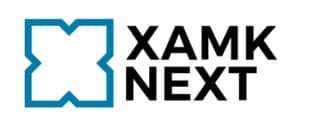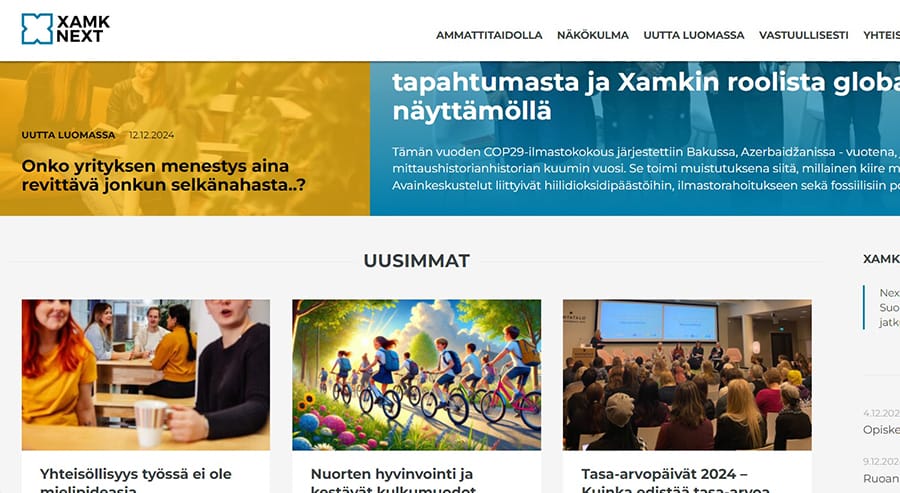Learn studying and well-being skills at Xamk
The online course “Study skills and student well-being” in the South-Eastern Finland University of Applied Sciences (Xamk) is instructed by Study Counselling Psychologists and offers students the opportunity to develop their study skills and learn how to support their own well-being. The course addresses important themes related to students’ well-being and aims to teach future working life skills based on self-management and ability to support one’s own well-being.
A new kind of student well-being service
In the fall of 2019, the Study Counselling Psychologists at Xamk wanted to expand the student well-being services and created an optional online course “Study skills and student well-being” because they thought it was important to provide students with opportunities to reflect on their own well-being and practice related skills regardless of time and place.
The need to improve one’s study and well-being skills had arisen from both students and staff. The backbone of the course is the assumption that the ability to study equals to the ability to work and entails skills that everyone can learn. Strengthening one’s ability to study is, therefore, a skills exercise and an act of continuous learning. In the future, well-being skills will be increasingly important for everyone in the world of work, so the course content aims to suit the needs of every student, regardless of their field of education.
The course will support students to cope with the most common concerns
The duration of the course is eight weeks and the extent is 2 ECTS credits. It is assessed on a scale of passed and failed. The course content is based on scientific research materials and independent exercises related to the following themes:
- Learning and study skills
- Good everyday life (nutrition, sleep, exercise and leisure)
- Stress and relaxation
- Stage fright
- Thoughts supporting well-being
- Emotions and self-awareness
- Relationships and interaction skills
The subject areas have been selected from the topics commonly raised by students during their appointments with Study Counselling Psychologists. During the course, students read scientific articles, search for research information on the Internet and watch lectures given by internationally renowned researchers.
The course encourages students to try out various exercises, such as relaxation exercises, that aim to improve their study skills and support their well-being. Also, the examination of one’s own thoughts and attitudes towards oneself is guided by various exercises. Students share their experiences in discussion forums and reflect on what they have learned, for example, through multiple-choice assignments.
International collaboration is part of the course
The course includes cooperation between Xamk students and psychology students at the University of Minnesota Duluth. Students collaborate in a separate Open Learn platform for three weeks. During the cooperation weeks, students get to know each other in small groups, do various exercises that support their well-being, and share their thoughts about these exercises.
The collaboration began when Carol Kivi, a psychology teacher at the University of Minnesota Duluth, visited Xamk during International Week 2019 and acquainted herself with the services provided by Study Counselling Psychologists at Xamk. During the visit, the equal support needs among university students regardless of cultural background and nationality and the demand for teaching well-being skills were highlighted. At the University of Minnesota Duluth, student collaboration is part of a psychology course.
The course to be permanently offered at Xamk
Students have appreciated the course and given good feedback. The total average feedback score on the course in the spring of 2020 was 4.5 (on a scale of 1-5). In the future, the goal is to have the course among Xamk’s permanently offered studies.
The course will also be offered in English through Campus Online in the fall of 2020. In the implementation instructed in English, the cooperation with the University of Minnesota Duluth will continue at least until the fall of 2020. In addition, the aim is to promote the course to students at the beginning of their studies.
This would likely reduce their workload and significantly help them to cope with the demands of their studies.
The skills learned during the course will support students in completing their studies on time. In addition, these skills make the graduate students’ transition to the labor market smoother by equipping them with extensive working life skills.




